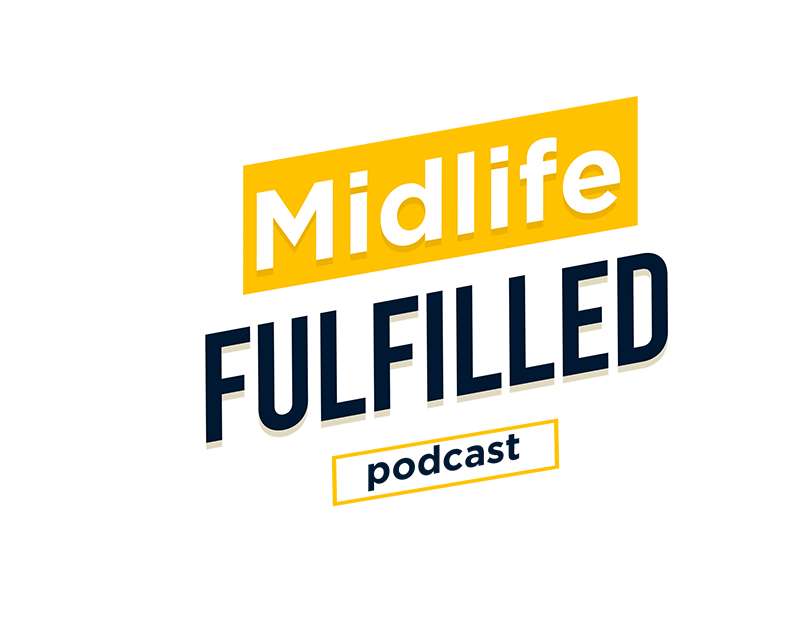The most common questions I hear from listeners of the Midlife Fulfilled podcast are about the five pillars. I’ll paraphrase these common questions into one: “Why are these five pillars considered to be all encompassing in our midlife?”
I have a short answer and a long answer to this question. The TLDR (too long, didn’t read) answer is this. If you attempt to look at your life in its entirety through the lens of fulfillment, it’s like “trying to boil the ocean.” Our lives are comprised of several distinct priorities. You are being unfair to yourself if you try to explore fulfillment across the entirety of your life without looking at each of the five pillars separately. In other words, you will unnecessarily stress yourself out using this approach, not to mention you won’t fully understand the meaning of fulfillment in your life.
It’s okay to combine your fulfillment across the five pillars in attempt to assess how fulfilled you are. But, first assess your fulfillment in each of these five pillars. This is why I end each podcast episode saying “if you’re 80% fulfilled, you’re doing great!”
Indulge me as I offer a longer answer by addressing each of the five pillars distinctly.
Health: Your health is the foundation of a fulfilling midlife. I don’t have to convince you that your physical and mental well-being are critical to everything you want to do in midlife. This includes your nutrition, your eating habits, your sleep and rest habits, your recreation and vacation habits, regular medical check-ups, and ongoing mental health care.
Fitness: Building on health, fitness involves consistent physical activity and exercise to maintain strength, flexibility, and endurance. It’s about developing a routine that you can stick to because it fits your lifestyle and preferences. Fitness in midlife contributes to feeling good about your body, even when you don’t look like you did in your 20s or 30s. Fitness is also about being functional outside your routine such as helping a neighbor carry their groceries or handling luggage at the airport.
Career: At this stage of life, career is about achieving satisfaction and fulfillment. This could mean advancing in your current career, pivoting to a new career, or finding balance between your work and personal life. The career pillar is also connected to financial well being, and saving for retirement.
Relationships: Throughout our life, we strive to develop strong connections with family, friends, work colleagues and community. In our midlife seasons we often reevaluate and deepen certain relationships as well as build new meaningful ones. The health of our relationships is immensely influential on the joy, happiness and fulfillment we can experience in our midlife seasons.
Legacy: The legacy pillar is all about reflecting on the impact you want to leave on the world when you’re gone, whether it’s your family, your community, a cause or something else that is meaningful to you. You can achieve legacy fulfillment in many ways including through mentorship, philanthropy, creative outputs, or the lessons you pass down to future generations.
Let’s look even further at each pillar individually to understand how to explore fulfillment in each one.
Health is the most crucial pillar for people in midlife for several reasons. Midlife is inherently a time of health transition that requires our attention. Men and women experience these transitions differently. Women experience menopause, which is accompanied by physical and mental challenges. Men often experience weight gain, decline in muscle mass and energy. Both men and women can experience a decline in their immune system after age 40.
Mental health is a significant aspect of overall well-being in midlife, during which we can experience numerous transitions and challenges. In recent years, the acceleration of digital technology and social media in particular have had an impact on middle-aged adults causing increased stress for some struggling to keep pace with the stress and changes in the workplace and in social settings. Additionally, the pressure of being “sandwiched” between aging parents who need care and kids of our own, can cause mental health challenges.
Physical health and daily function in midlife are closely linked to mental health, suggesting that habits can be addressed to improve overall well-being. In fact, up to a fifth of adults experience mental health problems in midlife, with Baby Boomers and Generation X facing the greatest risk of mental ill-health during this stage.
Fitness is crucial for people in midlife for several reasons. Unfortunately, many people over 40 consider fitness a thing of the past. Fitness has cumulative benefits, significantly improving physical performance in midlife. Promoting increased physical activity early in adulthood is best for maintaining health later in life. It’s never too late to become disciplined about fitness. Becoming physically active in middle age can help improve your longevity. Physical activity is also linked to successful aging, promoting health and well-being among middle-aged and older adults, especially in the younger population within these age groups.
Research indicates that active lifestyles in midlife positively impact brain health in later years, underscoring the importance of physical activity during your midlife decades. Healthy behaviors, such as maintaining physical activity and a healthy body weight, can moderate changes that occur during midlife, underscoring the role of health in ensuring a better quality of life during your midlife seasons.
Getting active in middle age improves health and increases longevity, with physical activity being as beneficial for reducing the risk of an early death as starting at a younger age. This is particularly important since we experience reduced muscle mass and strength with aging, and gradually increasing physical activity can help counteract these effects.
A career in midlife holds significant importance for several reasons, especially when considering the transitions that we often experience in our career during this season of life. For middle-aged professionals, career transitions can be a time for reassessment and realignment of personal and professional goals. This phase of life suggests the need for careful planning and becoming more self-aware to navigate changes successfully. Many of us consider changing careers in midlife for personal fulfillment, financial security, or professional growth, which is usually connected to the desire to pursue a more satisfying work-life balance or the realization of long-held aspirations.
Sometimes career shocks, or significant events that prompt reevaluation of your career path, play a crucial role in these transitions, forcing decision-making and adjustments to new realities. Mid-life work experiences also influence preferences for employment types, affecting outcomes such as job satisfaction and financial stability. Successfully navigating a midlife career change requires time, dedication, and thoughtful planning, highligting the importance of strategic decision-making during this period. Moreover, midlife career changes can lead to work happiness, decreasing overall stress levels, encouraging a positive outlook, and enhancing the quality of life.
In midlife, relationships play a multifaceted role, encompassing immediate family, extended family, work, community, and broader social connections. These relationships contribute significantly to an individual’s well-being and psychological health. Research highlights the benefits and challenges of intergenerational relationships, suggesting a need for a deeper understanding of these dynamics.
In our midlife seasons we often take on the role of kinkeepers, organizing events and communications to maintain family ties, a responsibility that underscores the importance of both immediate and extended family relationships during this period. The concept of “emotion work,” frequently undertaken by women, is crucial for fostering and maintaining family relationships, including navigating challenges such as abuse, discord, imbalance and more within the family context.
As children reach adulthood, maintaining meaningful familial relationships, including with extended family members as siblings introduce spouses and begin families of their own, becomes a priority for midlife adults. When these relationships are harmonious, they benefit the parents and the children. When these relationships are contentious, they add stress to your life. Beyond the family, extending commitment through work, mentoring, volunteering, and community engagement becomes a way for many midlife adults to give back and find fulfilling relationships. The literature on family networks indicates that, in midlife, the most meaningful relationships, beyond your children, are with spouses, mothers, and siblings, highlighting the importance of these relationships for psychological well-being.
Legacy is the final pillar on the journey to finding fulfillment. Legacy is defined by the impact you have on (fill in the blank). Whom do you want to impact? Your family? A community? A cause? Most of us don’t start thinking about our legacy until somewhere in the middle of our midlife seasons. Creating a legacy in midlife involves a multifaceted approach that includes financial, communal aspects, and impacts on family, friends, and potential on the broader society. Embracing incremental progress across the various pillars of your life can inspire a growth mindset toward achieving significant goals, thereby contributing to a meaningful legacy.
Creating a legacy involves reflecting on your current values and how you wish to be remembered. Understanding and participating in change creation is crucial for shaping a legacy that aligns with personal growth, emphasizing the role of engagement in your community of friends, family and acquintances.
The five pillars of midlife—health, fitness, career, relationships, and legacy—serve as foundational elements of a fulfilled and thriving existence during this transformative period of your life. Health and fitness are crucial for maintaining physical and mental well-being, enabling you to engage fully in life’s activities and challenges. A fulfilling career provides not only financial stability but also a sense of purpose and identity, contributing to overall happiness and satisfaction. Relationships offer a bedrock of security through love, friendship and comradery. Legacy provides meaning and purpose to your life beyond your time on Earth.
Every aspect of your life is captured in one of these pillars. I’ve been asked where does religion fit? Religion or faith, as I prefer to call it, is part of our relationship pillar. Whatever your belief system is, it is a relationship with your deity or a non-deity-belief system.
My closing thought is to encourage you to avoid trying to “boil the ocean” on your quest for fulfillment. Rather, look at your life through the lens of these five pillars. Examine your fulfillment in each pillar and discern where you are fulfilled, where you are not fulfilled, and which pillar(s) need your attention the most.
And, remember (as I say at the end of each podcast episode), if you’re 80% fulfilled, you’re doing great!
Feature image source: Freepik







